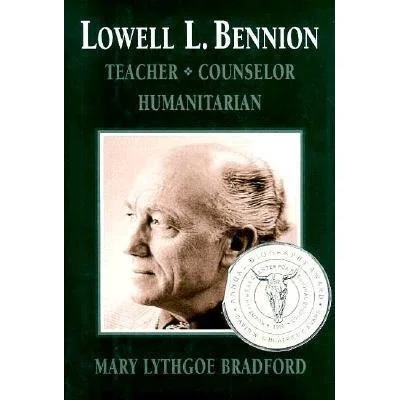Pro Lowell Bennion
It is good to praise and give thanks for those we have looked up to and admired. Lowell Bennion was one of those for me. I spent 8 weeks in each of the summers of 1972, 1973, 1974 and 1978 at the Teton Valley Boys’ Ranch that Lowell Bennion established, first as one of the boys and in 1978 as a counselor. The Teton Valley Boys’ Ranch did a lot to help me grow up. Though Dr. Bennion, we called him, was quite cerebral and led thoughtful discussions in the evenings, the ranch helped me balance out bookishness with a wide variety of manual labor in the weekday mornings (for which the boys were paid $2.50 for 4 hours out of the camp fees their parents had paid in the first place) with physical activities such as hiking, horseback riding, trampoline and competitive sports, and time with many new friends in the afternoons and on the weekends. (The Teton Valley Boys’ Ranch had a big enough impact on those who attended that alumni of the ranch have made sure that even a quarter century after Lowell Bennion’s death in 1996, a successor to the Teton Valley Boys’ Ranch exists.)
During the first few weeks I was at the ranch in 1972, I got sick and missed some workdays and asked Dr. Bennion what I should do. He suggested I work with him in the garden on some of the afternoons. So I got to know him well early on. He told me about his dissertation on Max Weber (the first book on Max Weber in English) and communicated wordlessly his love of gardening. He taught the principle of continuing to try to improve throughout life by apologizing for very mild profanity (“golly,” “by Jove”) and saying he was trying stop.
To the boys more generally, he said other memorable things. When we were building a barn, he talked about his hope that it would be beautiful. Combining a humanitarian lesson with an invocation of God, he said that painting widows’ fences as a way to get the favor of God was a substitute for the fire insurance he couldn’t buy for the ranch. With a largely Mormon context of trying to steer us toward avoiding premarital sex, he recommended not “going steady” with one woman until one was ready to marry.
Dr. Bennion communicated one key value by having the ranch quite literally take on at least one juvenile delinquent each summer to try to help them reform. This was costly in many ways, but he didn’t want to give up on people.
But beyond any of these specifics, it was Dr. Bennion’s presence that was most impressive. His soft-spoken, articulate wisdom was backed up by a calm centeredness. That example has provided me with a clear picture of what it looks like to be a good man. My Dad has some of that, but it was even more striking in Lowell Bennion.
I wish everyone were as lucky as I have been to have clear examples of deeply good men and deeply good women in their lives. Those of us who have been that lucky should tell stories about our heroes to bolster everyone’s faith in human potential.
Postscript: I’d love to connect with old friends from the Teton Valley Boys’ Ranch I have lost track of. Contact me on Facebook! I wish it had existed back then so we wouldn’t have fallen out of touch.

